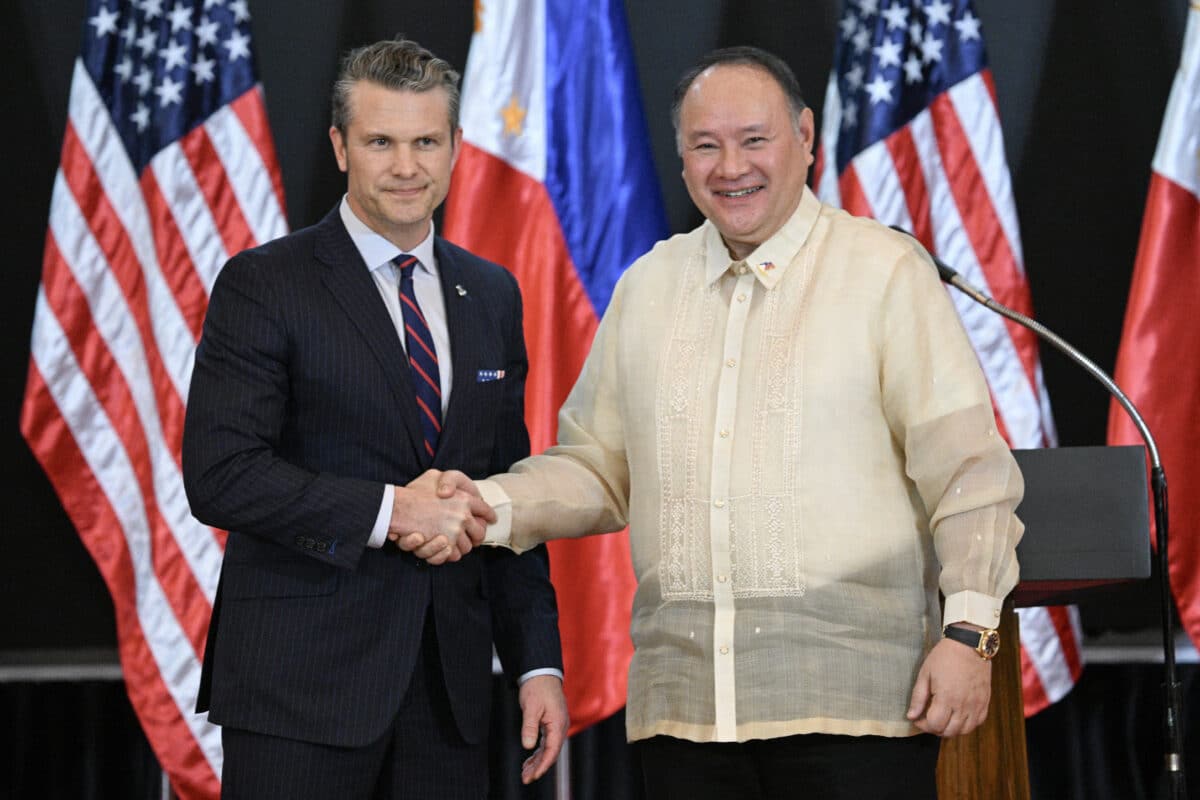US defense chief: ‘We don’t seek war, we seek peace, cooperation

US Secretary of Defense Pete Hegseth (L) and Philippines’ Secretary of National Defense Gilberto Teodoro shake hands after a joint press conference following their meeting at Camp Aguinaldo in Manila on March 28, 2025. Hegseth met Philippine President Ferdinand Marcos on March 28, saying the two countries must stand “shoulder to shoulder” in the face of the threat represented by China. (AFP)
MANILA, Philippines — Amid China’s aggression in the South China Sea (SCS), United States Defense Secretary Pete Hegseth clarified on Friday that the US does not seek “intervention” or “war” and instead seeks freedom.
Hegseth’s pronouncement came after reaffirming Washington’s “ironclad” commitment to the Philippines.
The US defense chief likewise expressed his gratitude to the Philippines, citing both countries’ “long, enduring friendship and partnership.”
“We don’t seek intervention. President Trump has made it clear we don’t seek war. We don’t seek to nation-build. We don’t seek to use chess pieces and move them around the board,” he said in a press conference during his visit to Camp Aguinaldo, Quezon City on Friday.
“All we seek is peace. All we seek is freedom and cooperation and mutual benefit. And we find that in friends like our friends in the Philippines. But do not mistake our friendship. Do not mistake our belief in peace and our desire for peace for a lack of resolve. Too many have, and America still stands strong today and will continue into the future,” he added.
His local counterpart, Defense Secretary Gilberto Teodoro Jr. said the Philippines is not a mouthpiece of any country.
Teodoro’s comment stemmed from a recent statement of the Ministry of Foreign Affairs of the People’s Republic of China, saying that “nothing good will come out from opening the door to a predator” — pertaining to the US.
“I think their worldview is really, really quite limited. That’s why the robotic quality of their statements. I think that characterizing people who do not appropriate parts of the South China Sea as their own, as they do the 10-dash line, speaks loudly of themselves rather than others,” Teodoro said.
Beijing’s continued aggression was based on its assertion of sovereignty over almost the entire South China Sea, including most of the West Philippine Sea, as it continues to reject a July 2016 Arbitral Award that effectively dismissed its claims and ruled in favor of Manila.
The landmark ruling stemmed from a case filed by Manila in 2013, a year after its tense standoff with Beijing over Panatag Shoal, whose lagoon the latter now effectively controls.


















